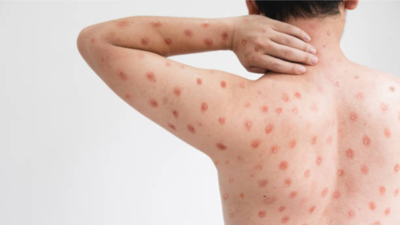The first case of Mpox clade 1b has been detected in Kerala's Malappuram . The virus has been identified in a 38 year old man who traveled to India from the United Arab Emirates. Health Ministry spokesperson Manisha Verma has confirmed the strain.
The case found in Kerala is South Asia's first recorded case from the new strain. "India reports first MPOX clade 1 case, which was reported from Kerala Malappuram last week. Top Picks For You Another Mpox suspected case in India: Man showing symptoms admitted to hospital Surveillance tightened for Mpox at KIA The patient is a 38-year-old man who traveled from the UAE; this is the strain after which WHO declared a public health emergency ," sources told news agency PTI.
Clade 1b was declared public health emergency by the World Health Organisation (WHO) on August 14 after the new strain was found spreading to neighboring countries after being identified in the Democratic Republic of Congo. Monkeypox infection: When to seek medical help Another mpox case was identified in India in Delhi, but it was of the Clade 2 strain. What were the mpox symptoms seen in the infected man? "The man had a fever and rash similar to chickenpox on his body, after which the doctor got suspicious and sent a sample for testing," they added.
About 29 friends and family members of the patient along with 37 passengers on his flight are being monitored at home but none of them have shown any mpox symptoms so far, Malappuram district's nodal officer, Dr. Shubin.


















